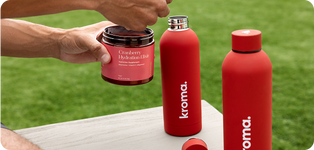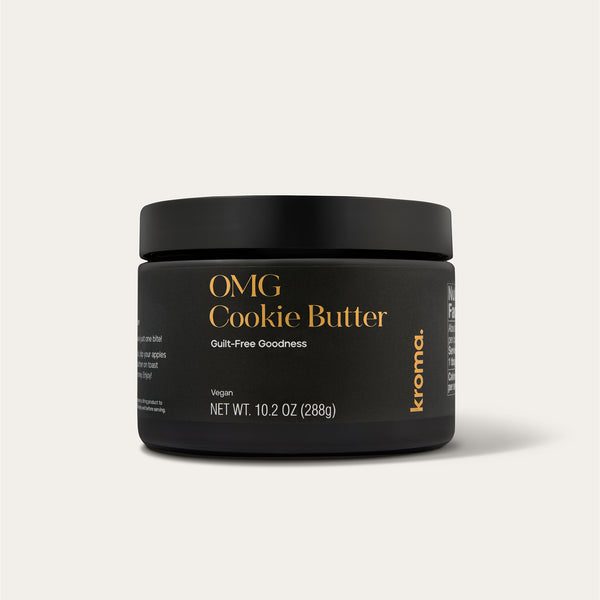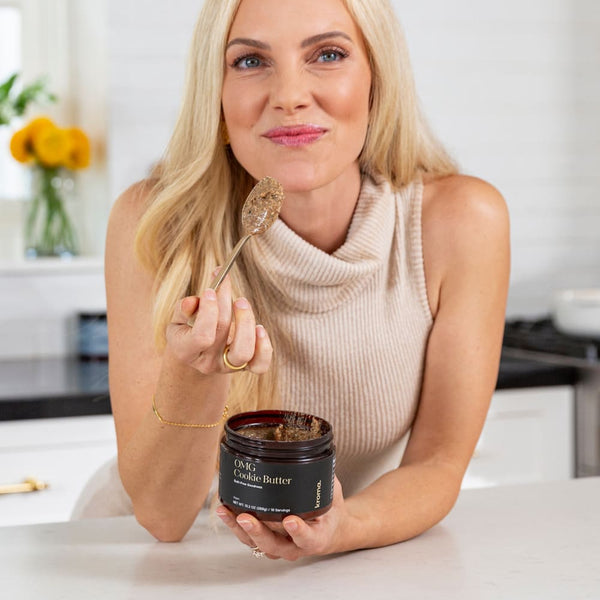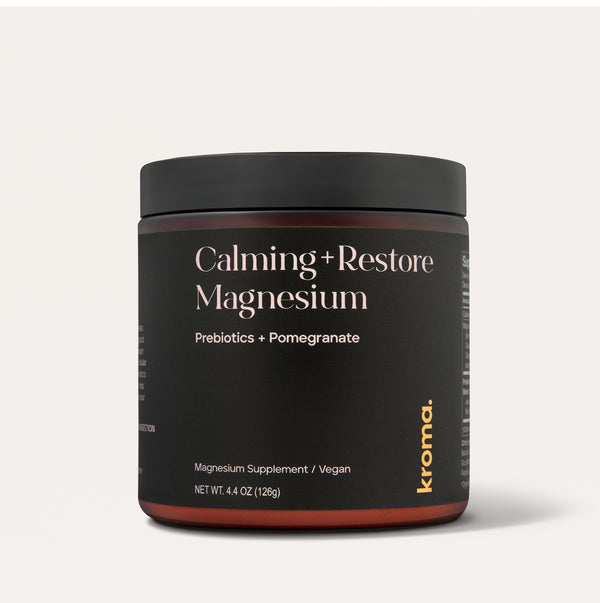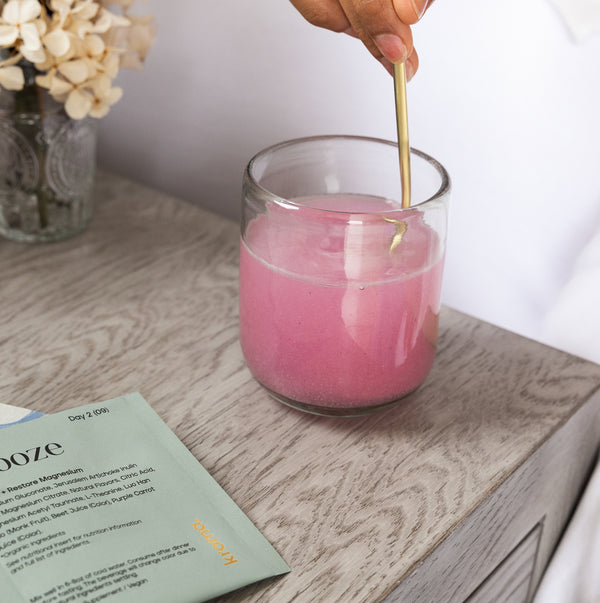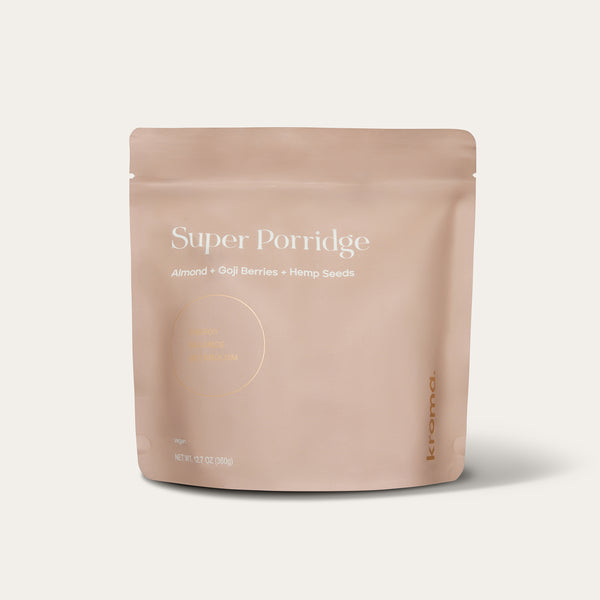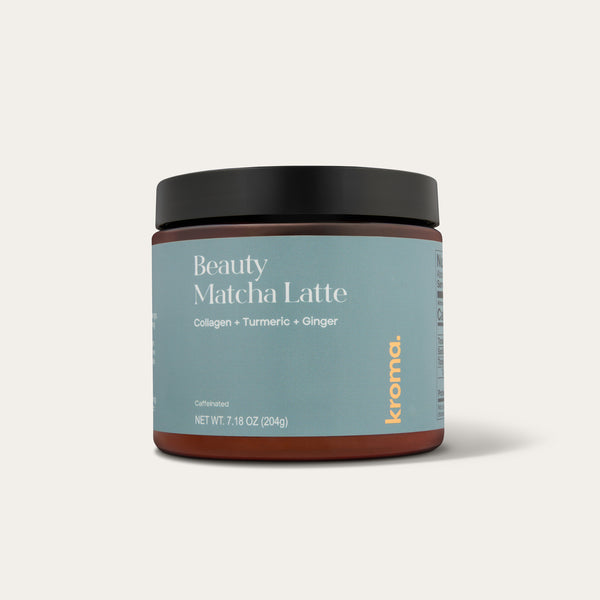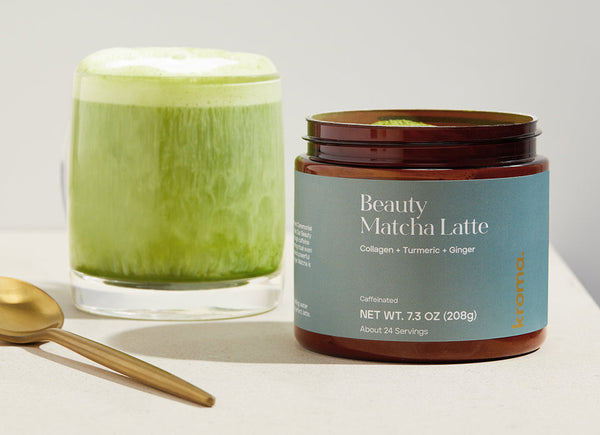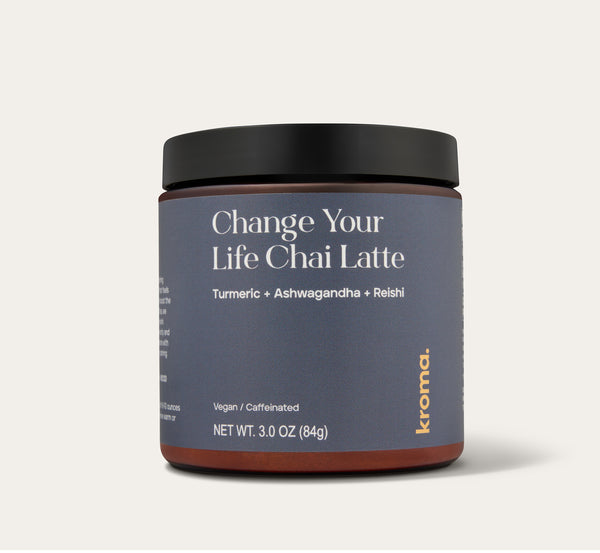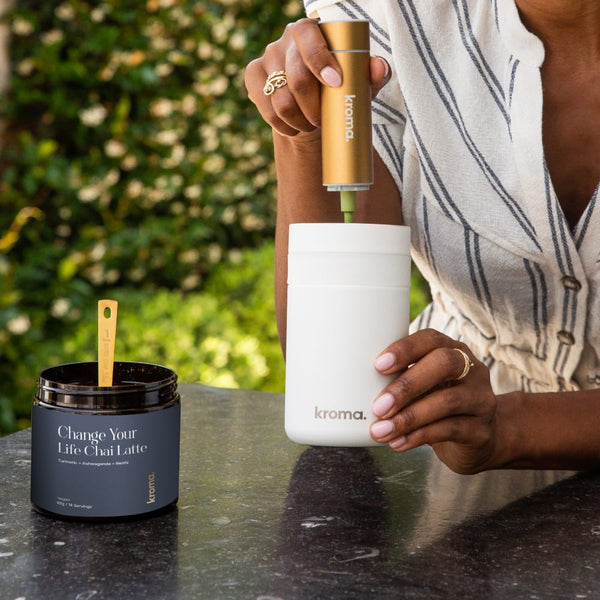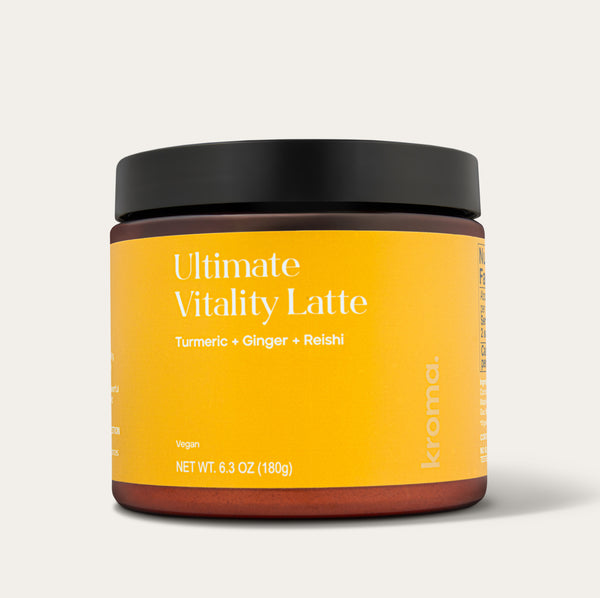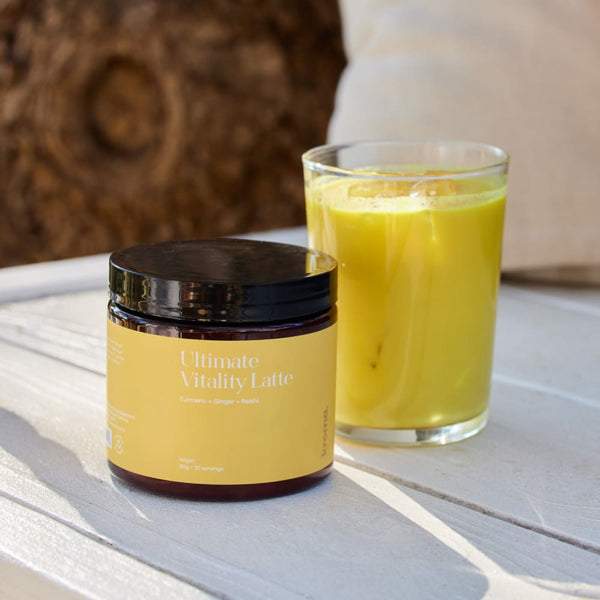If you're trying to limit your sugar intake, monk fruit is a great substitute. Understanding monk fruit benefits can help you make informed choices about natural sweeteners: also known as Luo Han Guo, this small, round fruit in the gourd family is native to China and Thailand.
The benefits of monk fruit extend beyond its remarkable sweetness; it's known in the nutrition world for having no calories and zero carbs (which is why Kroma uses it as a sweetener in many lattes and smoothies). Many people wonder, "Is monk fruit good for you?" and the answer lies in its unique nutritional profile and natural compounds.
First cultivated and discovered by the Luo Han monks over 800 years ago, this green gem of a melon also provides a variety of health benefits you might not know about yet.
What Is Monk Fruit Extract?
What is monk fruit extract? It's a natural sweetener derived from processing the monk fruit into a concentrated form. Monk fruit extract is up to two hundred times sweeter than traditional sugar, and it is made by crushing and drying the seeds and skin into a fine, concentrated powder. Monk fruit extract has a sweet taste that far surpasses the taste of table sugar or artificial sweeteners.
Understanding what is monk fruit extract helps explain why it obtains its sweet flavor from antioxidants in the fruit, called mogrosides. Monk fruit does not contain glucose or fructose, making it a popular sweetener for dieters and people with blood sugar regulation issues. These properties contribute to the many monk fruit benefits that make it an ideal sugar alternative.
What Are the Benefits of Monk Fruit?
The benefits of monk fruit not only extend to its low-calorie sweetening abilities; they also include many health benefits worth noting. From energy support to sleep quality and immune support, the benefits of monk fruit can provide a variety of benefits for your overall health and well-being.
If you're asking, "Is monk fruit good for you?" consider these twelve scientifically-backed health benefits that demonstrate why monk fruit has become a popular wellness choice.
Discover twelve of the most noteworthy health benefits of monk fruit below.
1. Monk Fruit for Weight Management
Artificial sweeteners such as aspartame and sucralose may contribute to weight gain, and obesity is a risk factor for many further health issues. Many artificial sweeteners are FDA-approved, but that doesn't mean they're healthy.
In fact, artificial sweeteners can lead to cravings, overeating, high blood sugar levels, and an imbalance in good gut bacteria. The monk fruit benefits for weight management stand in stark contrast to these artificial options.
Monk fruit is a popular alternative to artificial sweeteners because it tastes sweet and does not contain the adverse side effects of these other types of sweeteners. It has zero calories and zero carbs, making it a dieter's dream come true. When considering is monk fruit good for you, the answer is clear: monk fruit is a fantastic substitute for table sugar and artificial sweetener ingredients that are marketed to "support" weight loss.
2. Monk Fruit Supports Healthy Levels of Blood Sugar
Does monk fruit raise blood sugar? One of the key monk fruit benefits is that it may improve glycemic control by not negatively affecting blood sugar levels, making it a safe option for individuals concerned about diabetes or those following a low-carb diet.
One study explored the effects of aspartame and monk fruit-sweetened beverages and their effects on the glycemic index of 30 male participants. Researchers measured the participants' blood glucose and insulin levels and found that monk fruit had little to no effect as opposed to artificial sweeteners, which raised these glycemic levels. This research answers the question "is monk fruit good for you?" for those managing blood sugar concerns.
Monk fruit is a natural sweetener containing compounds called mogrocides. Mogrocides protect DNA and lower blood glucose levels in the body, which may be why monk fruit does not negatively impact blood sugar.
3. Monk Fruit Helps Combat Swelling
Monk fruit contains mogrocides, and these compounds may have anti-inflammatory properties that protect the body from free radical damage (the main source of inflammation). Among the many benefits of monk fruit, its anti-inflammatory effects may help ward off certain health concerns.
These anti-inflammatory effects may make monk fruit a healthier alternative to conventional, artificial sweeteners that have been shown to contribute to inflammation in the gut.

4. Monk Fruit Supports Immunity
For centuries, this green gem has been used in Traditional Chinese medicine to relieve sore throats, coughs, and loosen phlegm, which are just a few of the benefits of monk fruit. When exploring what is monk fruit extract used for, immune support stands out as a traditional and modern benefit.
Monk fruit contains a compound called siraitiflavandiol, an antibacterial agent that fights the growth of Candida albicans (bad yeast that grows in the gut) and Streptococcus mutansin (causes tooth decay) cell cultures.
Mogrocides help support immunity, according to a study administered to immunosuppressed mice. Cellular immunity was significantly enhanced in these mice when mogrocides were administered, suggesting that monk fruit may work to combat certain illnesses.
5. Monk Fruit Supports a Healthy Heart
Monk fruit contains compounds that prevent the oxidation of cholesterol. When cholesterol oxidizes, it builds up into plaque in the blood vessels and arteries. The cardiovascular monk fruit benefits are significant: the mogrosides in monk fruit can help prevent cholesterol from accumulating in the arteries and may even increase HDL (good cholesterol).
Because of these effects, monk fruit can help support a healthy heart. For those wondering is monk fruit good for you from a cardiovascular perspective, these heart-protective properties provide a compelling answer.
6. Monk Fruit Antioxidant Boost
The mogrosides in monk fruit are what give it its sweetness. These compounds may help protect DNA and prevent oxidative stress by offering an antioxidant boost. Understanding what is monk fruit extract's role in antioxidant support reveals why it's more than just a sweetener.
Antioxidants work to prevent free radical damage, reduce the effects of skin aging, and reduce inflammation that can lead to disease. These protective benefits of monk fruit make it a functional ingredient beyond its sweetening capabilities.
7. Monk Fruit Is a Natural Alternative to Sweeteners
Monk fruit is a fantastic alternative to other sweeteners because it is heat-stable and ideal for baked goods.
But is monk fruit healthy? Yes, monk fruit is a healthy sugar substitute and the benefits of monk fruit include being suitable for sweetening coffee, tea, sauces, salad dressings, desserts, recipes, and baked goods without the health risks associated with artificial sweeteners.
Kroma OMG Cookie Butter is a healthier sweet treat containing monk fruit, almond butter, goji berries, and coconut butter. Full of antioxidants, omega fats, and plant protein, OMG Cookie Butter helps satisfy your sweet tooth without compromising your wellness goals.

8. Monk Fruit Contains Essential Nutrients
Eating monk fruit in its natural state provides healthy doses of vitamin C. Vitamin C boosts the immune system because it supports the production of white blood cells. These cells promote the body's overall immunity, helping prevent certain illnesses.
Table sugar may deplete the body of vitamins and minerals consumed from other food sources, meaning that conventional added sugar may play a role in malnutrition. Among the nutritional monk fruit benefits, its lack of nutrient-depleting effects stands out. Monk fruit, however, does not contain fructose or glucose, and it is calorie-free and fat-free, making it an ideal sugar substitute.
9. Monk Fruit Supports Metabolism
Whereas artificial sweeteners have been linked to endocrine disruption and metabolic disturbances, the benefits of monk fruit include metabolic support. Monk fruit has not been shown to have these same negative effects. Artificial sweeteners may negatively impact the endocrine system, leading to metabolic changes and imbalances in the gut microbiome. Is monk fruit good for you metabolically? Yes, monk fruit may be a healthier alternative to artificial sweeteners because it does not disrupt the body's metabolism or energy.
10. Monk Fruit Supports Sleep Quality

Sleep is one of the most important aspects of your well-being affecting your physical and mental health. The monk fruit benefits for sleep quality make it an excellent choice for evening beverages. Table sugar promotes reduced sleep quality due to its ability to affect cortisol levels significantly.
Cortisol is the stress hormone that affects your immune system function, metabolism, and stress response. Normal cortisol levels are at their peak in the morning hours and gradually decline throughout the day.
Cortisol tells your body when it's time to wake up, and when you eat sugar, it triggers an elevation of insulin, which leads to an elevation in cortisol. This signals a group of cells in your brain to "wake up," affecting your circadian rhythm (sleep cycle).
Though table sugar and certain sugar substitutes have been shown to interfere with sleep, monk fruit does not appear to have the same adverse effects. What is monk fruit extract's impact on sleep? It does not spike the body's blood sugar levels, making it a sleep-friendly sweetener option.
Kroma Wellness Calming + Restore Magnesium combines all the benefits of monk fruit sugar with magnesium, prebiotics, and pomegranate to soothe your body, support better sleep, and regulate digestion.
11. Monk Fruit Helps Support Energy Levels
Artificial sugar substitutes trick our brains into thinking we are consuming sweet treats. Reward pathways in the brain are not fully activated because these sweeteners don't contain the calories our bodies need, causing us to eat more and exercise less. Less exercise leads to lower energy levels.
A study conducted on mice found that monk extract decreased fatigue in mice that exercised, increasing the duration of exercise. Among the athletic benefits of monk fruit, enhanced endurance stands out. Monk fruit is often called the "longevity fruit" because of its potential support for energy and athletic endurance. Is monk fruit good for you if you're active? Research suggests it may support exercise performance.
Kroma Spicy Passion Latte contains monk fruit alongside maca, reishi mushroom, and cacao for a delicious way to feel energized, rejuvenated, and ready to get your spice on.

12. Monk Fruit Supports the Body’s Response to Allergens
The human body has many mast cells that mediate histamine response. Histamine response is the inflammatory allergic reaction your body has to foreign stimuli such as an insect bite. For example, the body's response to seasonal allergies triggers a histamine response that leads to nasal congestion and a runny nose.
The benefits of monk fruit extend to allergen response: monk fruit may block the body's histamine response to allergies, similar to mast cells.
Monk Fruit Side Effects: Is It Safe for Everyone?
According to The Food and Drug Administration (FDA), monk fruit is generally recognized as safe for consumption by all consumers, including pregnant/nursing women and children. When considering is monk fruit good for you from a safety perspective, FDA approval provides reassurance. This FDA approval includes its use in both food and beverages. Although side effects of monk fruit consumption are rare, some people may experience mild digestive issues, but serious side effects are rare.
The FDA approved monk fruit for use as a sweetener in 2010, so there are no long-term studies to know the long-term effects of monk fruit consumption. It is always best to exercise caution when consuming large amounts of monk fruit.
Consult your doctor if you are taking medications to ensure that no negative interactions occur.
Is Monk Fruit Healthier than Stevia?
Is monk fruit sweetener healthy? Understanding monk fruit benefits in comparison to other sweeteners helps inform your choice. Both monk fruit sweeteners and Stevia are plant-based products with similar health benefits and properties. Both are considered to be healthy alternatives to sugar. However, some people find Stevia has an unpleasant bitter aftertaste. Stevia is also known to have more potential side effects, such as bloating, gas, and nausea. When comparing is monk fruit good for you versus stevia, monk fruit's taste profile and gentler digestive effects make it a popular alternative.
How Should I Use Monk Fruit as a Sweetener?
The shelf life of monk fruit is short, so many people opt to use it in its dried state. To maximize the benefits of monk fruit, understanding what is monk fruit extract's versatility is key. It is also available as a sweetener in liquid and powder forms. Its sweet flavor is ideal for use in recipes requiring sugar or sweet ingredients, and in the following:
- Tea
- Coffee and lattes
- Smoothies and juice
- Sauces and dressings
- Oatmeal and cereals, like our Super Porridge
- Baked goods

Are Monk Fruit Allergies Common?
Severe allergic reactions to monk fruit after consumption are not common — however, if you are prone to food allergies and unsure, consult your doctor before incorporating monk fruit extract into your diet. While the benefits of monk fruit are numerous, understanding potential sensitivities is important.
If you have allergies to fruits in the gourd family, such as melons, you may be at a higher risk of monk fruit allergies.
The Bottom Line on Monk Fruit Benefits

Monk fruit was first used by monks over 800 years ago. Today, it is widely used as a sweetener alternative to table sugar, aspartame, sucralose, and other artificial sweeteners. The comprehensive monk fruit benefits make it especially beneficial for consumption, and when people ask "is monk fruit good for you?" the evidence strongly supports its use as a natural sweetener.
Understanding what is monk fruit extract and how it works in the body reveals why this ancient sweetener has gained modern popularity. Kroma Wellness is proud to source and blend our Fasting Matcha with monk fruit. Its antioxidant-rich recipe contains ten times more antioxidants than green tea. This latte combines ceremonial-grade matcha with monk fruit, turmeric root extract, ginger root, goji berry, spirulina, and Himalayan pink salt to boost your metabolism and amplify your focus every morning.
Sources
Everything You Need To Know About Monk Fruit Sweeteners | Food Insight
Antibacterial compounds from Siraitia grosvenorii leaves | Pub Med
The Biology of Streptococcus mutans | NCBI
Added sugars drive nutrient and energy deficit in obesity: a new paradigm | NCBI
How Non-nutritive Sweeteners Influence Hormones and Health | Research Gate
How Sugar Affects Your Sleep | Start Sleeping
Effects of Siraitia grosvenorii Fruits Extracts on Physical Fatigue in Mice | NCBI
[Regulation on the immunological effect of mogrosides in mice] | Pub Med
Difference Between Monk Fruit and Stevia as Sweeteners | WebMD

